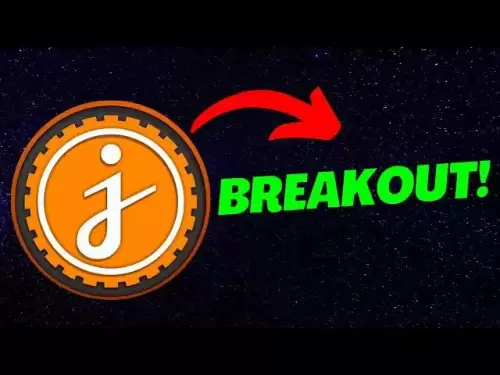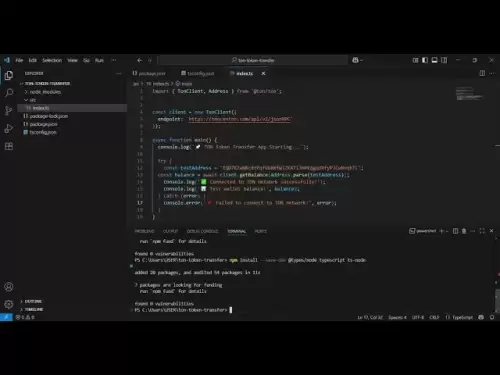-
 Bitcoin
Bitcoin $118,841.1054
1.02% -
 Ethereum
Ethereum $3,364.2689
7.44% -
 XRP
XRP $3.0337
3.93% -
 Tether USDt
Tether USDt $1.0004
0.04% -
 BNB
BNB $708.2059
2.49% -
 Solana
Solana $173.2385
5.74% -
 USDC
USDC $0.9999
-0.01% -
 Dogecoin
Dogecoin $0.2121
6.85% -
 TRON
TRON $0.3090
2.81% -
 Cardano
Cardano $0.7628
2.25% -
 Hyperliquid
Hyperliquid $46.8391
-2.08% -
 Stellar
Stellar $0.4537
0.15% -
 Sui
Sui $3.9529
-2.88% -
 Chainlink
Chainlink $16.6414
3.72% -
 Hedera
Hedera $0.2354
1.52% -
 Bitcoin Cash
Bitcoin Cash $499.1285
0.43% -
 Avalanche
Avalanche $22.6400
0.57% -
 Shiba Inu
Shiba Inu $0.0...01438
4.88% -
 UNUS SED LEO
UNUS SED LEO $8.8507
-0.64% -
 Toncoin
Toncoin $3.1498
2.35% -
 Litecoin
Litecoin $97.4954
1.21% -
 Polkadot
Polkadot $4.1541
1.50% -
 Monero
Monero $331.4406
-1.03% -
 Pepe
Pepe $0.0...01350
5.24% -
 Uniswap
Uniswap $8.9103
-5.01% -
 Bitget Token
Bitget Token $4.7540
4.51% -
 Dai
Dai $0.9999
-0.02% -
 Ethena USDe
Ethena USDe $1.0008
0.00% -
 Aave
Aave $322.3328
-1.63% -
 Bittensor
Bittensor $431.8026
-0.50%
What are the Kraken on-chain staking options?
Kraken enables on-chain staking for PoS cryptocurrencies like Ethereum, Cardano, and Solana, letting users earn rewards while maintaining control of their private keys.
Jul 16, 2025 at 03:35 pm
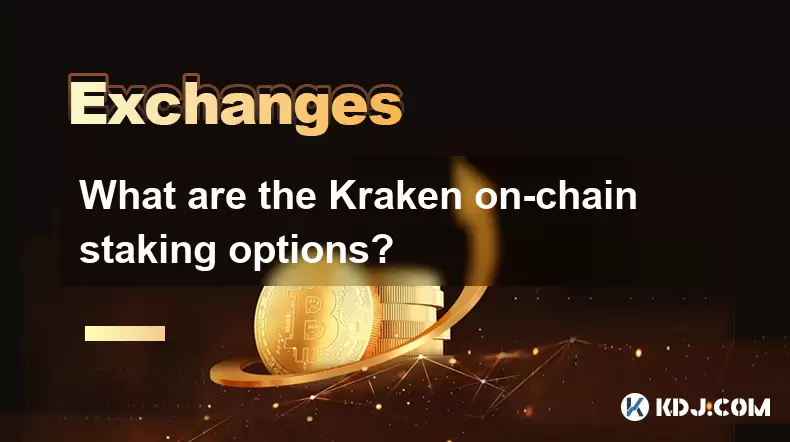
Understanding On-Chain Staking on Kraken
Kraken, one of the leading cryptocurrency exchanges in the United States, provides on-chain staking services for a variety of proof-of-stake (PoS) cryptocurrencies. Unlike traditional staking where funds are held within the exchange's wallet system, on-chain staking involves locking up tokens directly on the blockchain network. This means users retain more control over their assets and participate in network validation processes.
Kraken’s on-chain staking is distinct from its custodial staking options because it allows users to maintain ownership of their private keys while still earning rewards. This method aligns with decentralized finance (DeFi) principles by giving users greater transparency and autonomy over their staked assets.
Supported Cryptocurrencies for On-Chain Staking
Kraken supports several PoS-based digital assets for on-chain staking, including:
- Ethereum (ETH): After transitioning from proof-of-work (PoW) to PoS in 2022, Ethereum became a major candidate for staking.
- Cardano (ADA): Known for its research-driven approach, Cardano enables stakers to delegate ADA to stake pools.
- Solana (SOL): Offers high throughput and fast transaction times, making it attractive for stakers.
- Polkadot (DOT): Allows stakers to bond DOT and participate in consensus via nominated proof-of-stake (NPoS).
- Algorand (ALGO): Features a pure proof-of-stake mechanism that rewards holders who stake ALGO.
Each of these networks has specific requirements, such as minimum staking amounts or delegation procedures. Kraken ensures users can interact with these protocols without needing advanced technical knowledge.
How to Stake Ethereum On-Chain Through Kraken
To stake Ethereum (ETH) on-chain using Kraken, users must follow a series of steps that ensure proper integration with the Ethereum network:
- Ensure you have at least 32 ETH, which is the minimum required to become a validator node on Ethereum.
- Navigate to your Kraken dashboard and go to the "Staking" section under Ethereum.
- Choose the option for on-chain staking, which will prompt you to either import an existing wallet or generate a new one.
- Generate or import your validator keys using Kraken’s integrated tools or third-party software like Eth2 Launchpad.
- Confirm the deposit transaction and wait for the Ethereum network to process it, which may take some time due to network congestion.
By following this procedure, users maintain full custody of their keys while participating in Ethereum’s consensus layer.
On-Chain Delegation for Cardano (ADA)
For those interested in staking Cardano (ADA) on-chain through Kraken, the process involves delegating ADA to a stake pool rather than running a full validator node:
- Log into your Kraken account and navigate to the ADA staking dashboard.
- Select the "On-chain Staking" option and choose a trusted stake pool.
- Review the pool performance metrics, fees, and uptime before delegating.
- Approve the transaction and allow time for the delegation to register on the Cardano blockchain.
This method allows users to earn passive income without locking up large amounts of ADA. It also avoids the need for constant monitoring and maintenance associated with running a full node.
Solana (SOL) On-Chain Staking Process
Staking Solana (SOL) on-chain through Kraken requires users to delegate SOL to validators operating within the Solana ecosystem:
- Access your SOL wallet on Kraken and check your available balance.
- Click on the "Stake" button and select the on-chain staking option.
- Choose a validator from the list provided, or search for custom validators if preferred.
- Enter the amount of SOL you wish to stake and confirm the transaction.
Once completed, the delegated SOL contributes to the network’s security and earns rewards over time. Users can unstake their SOL if needed, though there is typically a cooling-off period before the funds become liquid again.
Security Considerations for On-Chain Staking on Kraken
While on-chain staking offers greater control, it also comes with increased responsibility for securing private keys. Unlike custodial staking, where Kraken manages the infrastructure, on-chain staking requires users to manage their own wallets and validator setups.
Key security measures include:
- Using hardware wallets to store validator keys offline.
- Enabling two-factor authentication (2FA) on your Kraken account.
- Regularly updating staking software and validating tools.
- Keeping backups of mnemonic phrases and private keys in secure locations.
Failure to implement these precautions can lead to loss of funds or unauthorized access to staked assets.
Frequently Asked Questions
Q1: Can I switch from custodial staking to on-chain staking on Kraken?
Yes, Kraken allows users to transition from custodial staking to on-chain staking by withdrawing their funds and initiating the on-chain process manually.
Q2: Is there a fee for on-chain staking on Kraken?
Kraken does not charge additional fees beyond standard network transaction costs when staking on-chain. However, validator pools may impose service fees depending on the network.
Q3: What happens if I lose my validator keys?
Losing validator keys means losing access to your staked assets and any accrued rewards. Kraken does not provide recovery services for on-chain staking-related key losses.
Q4: Can I unstake anytime with on-chain staking?
Unstaking periods vary by network. For example, Ethereum currently requires a waiting period before withdrawals are possible post-staking, while other networks like Cardano offer more flexibility.
Disclaimer:info@kdj.com
The information provided is not trading advice. kdj.com does not assume any responsibility for any investments made based on the information provided in this article. Cryptocurrencies are highly volatile and it is highly recommended that you invest with caution after thorough research!
If you believe that the content used on this website infringes your copyright, please contact us immediately (info@kdj.com) and we will delete it promptly.
- Coinbase's 'Everything App' Vision: Base App Unites Crypto, Social, and Payments
- 2025-07-17 08:30:13
- Aster: Revolutionizing DeFi with Perpetual Contracts on US Equities
- 2025-07-17 08:30:13
- Biofuel Services Powering Fleet Sustainability & Fuel Delivery: A New Era
- 2025-07-17 06:30:13
- Bitcoin, Altcoins, and Market Dominance: Decoding the Crypto Landscape
- 2025-07-17 06:30:13
- TikTok, Creators, and Records: A Wild Ride in the Digital Age
- 2025-07-17 06:50:13
- Roger Ver, Bitcoin Jesus, and the Extradition Lawsuit: A New York Minute on Crypto's Controversial Figure
- 2025-07-17 06:50:13
Related knowledge
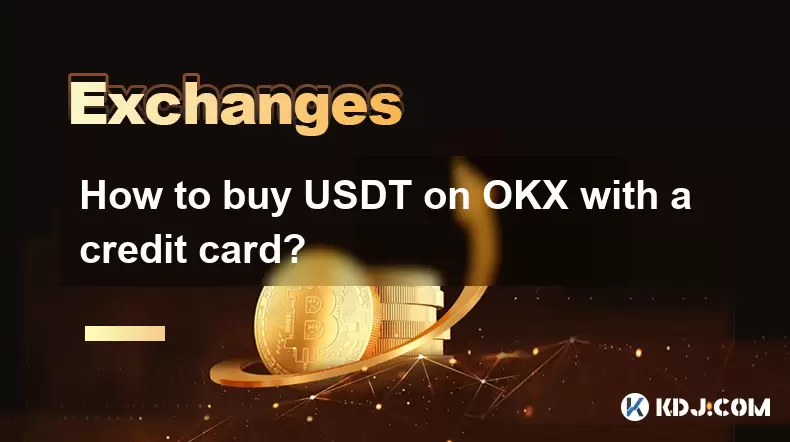
How to buy USDT on OKX with a credit card?
Jul 10,2025 at 01:14pm
What is USDT and why buy it on OKX?USDT (Tether) is one of the most widely used stablecoins in the cryptocurrency market. It is pegged to the value of...
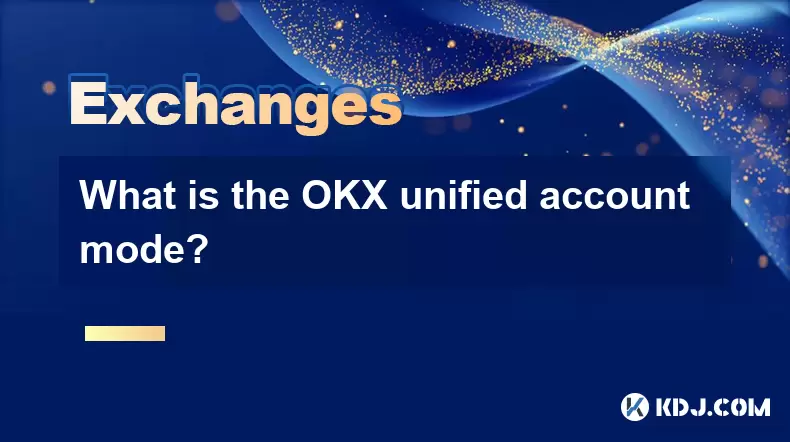
What is the OKX unified account mode?
Jul 09,2025 at 01:07pm
Understanding the OKX Unified Account ModeThe OKX unified account mode is a feature introduced by OKX, one of the leading cryptocurrency exchanges glo...
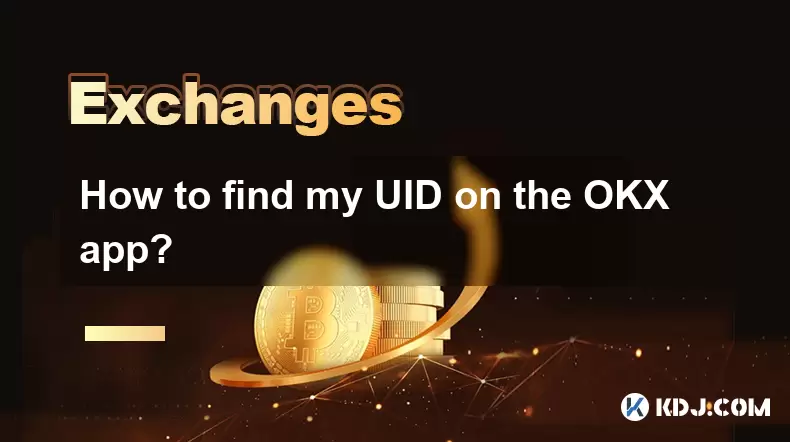
How to find my UID on the OKX app?
Jul 14,2025 at 08:56pm
Understanding What a UID Is on OKXIn the context of cryptocurrency platforms, a UID (User Identification Number) is a unique identifier assigned to ea...
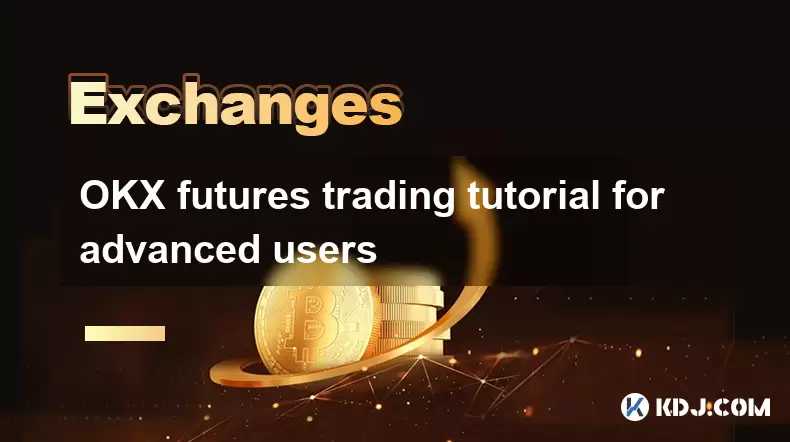
OKX futures trading tutorial for advanced users
Jul 09,2025 at 07:29am
Understanding OKX Futures Trading InterfaceBefore diving into advanced strategies, it's crucial to have a deep understanding of the OKX futures tradin...
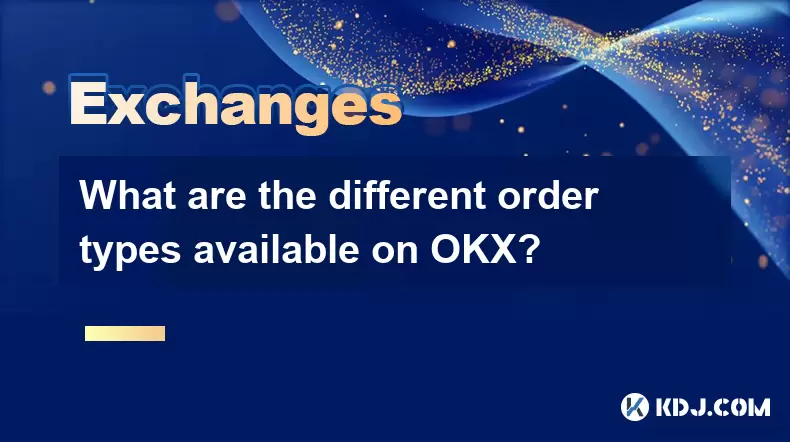
What are the different order types available on OKX?
Jul 08,2025 at 10:15pm
Understanding Order Types on OKXOKX is one of the leading cryptocurrency exchanges globally, offering a wide array of trading tools and order types to...
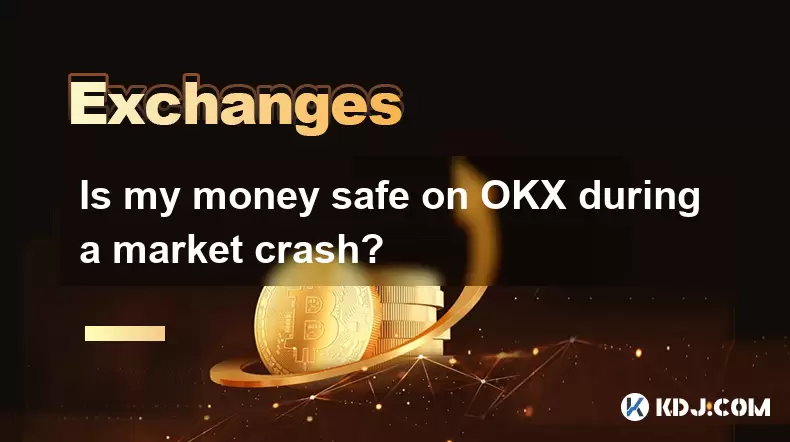
Is my money safe on OKX during a market crash?
Jul 09,2025 at 01:43pm
Understanding Market Crashes and Cryptocurrency ExchangesDuring a market crash, cryptocurrency prices plummet rapidly, often causing panic among trade...

How to buy USDT on OKX with a credit card?
Jul 10,2025 at 01:14pm
What is USDT and why buy it on OKX?USDT (Tether) is one of the most widely used stablecoins in the cryptocurrency market. It is pegged to the value of...

What is the OKX unified account mode?
Jul 09,2025 at 01:07pm
Understanding the OKX Unified Account ModeThe OKX unified account mode is a feature introduced by OKX, one of the leading cryptocurrency exchanges glo...

How to find my UID on the OKX app?
Jul 14,2025 at 08:56pm
Understanding What a UID Is on OKXIn the context of cryptocurrency platforms, a UID (User Identification Number) is a unique identifier assigned to ea...

OKX futures trading tutorial for advanced users
Jul 09,2025 at 07:29am
Understanding OKX Futures Trading InterfaceBefore diving into advanced strategies, it's crucial to have a deep understanding of the OKX futures tradin...

What are the different order types available on OKX?
Jul 08,2025 at 10:15pm
Understanding Order Types on OKXOKX is one of the leading cryptocurrency exchanges globally, offering a wide array of trading tools and order types to...

Is my money safe on OKX during a market crash?
Jul 09,2025 at 01:43pm
Understanding Market Crashes and Cryptocurrency ExchangesDuring a market crash, cryptocurrency prices plummet rapidly, often causing panic among trade...
See all articles
























